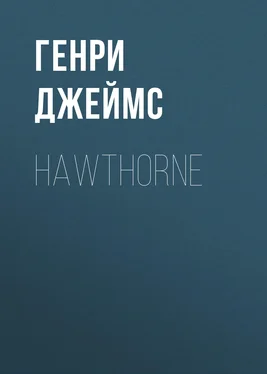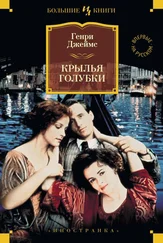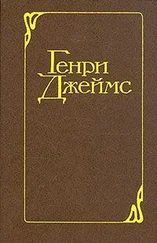Генри Джеймс - Hawthorne
Здесь есть возможность читать онлайн «Генри Джеймс - Hawthorne» — ознакомительный отрывок электронной книги совершенно бесплатно, а после прочтения отрывка купить полную версию. В некоторых случаях можно слушать аудио, скачать через торрент в формате fb2 и присутствует краткое содержание. Жанр: Биографии и Мемуары, literature_19, foreign_antique, на английском языке. Описание произведения, (предисловие) а так же отзывы посетителей доступны на портале библиотеки ЛибКат.
- Название:Hawthorne
- Автор:
- Жанр:
- Год:неизвестен
- ISBN:нет данных
- Рейтинг книги:4 / 5. Голосов: 1
-
Избранное:Добавить в избранное
- Отзывы:
-
Ваша оценка:
- 80
- 1
- 2
- 3
- 4
- 5
Hawthorne: краткое содержание, описание и аннотация
Предлагаем к чтению аннотацию, описание, краткое содержание или предисловие (зависит от того, что написал сам автор книги «Hawthorne»). Если вы не нашли необходимую информацию о книге — напишите в комментариях, мы постараемся отыскать её.
Hawthorne — читать онлайн ознакомительный отрывок
Ниже представлен текст книги, разбитый по страницам. Система сохранения места последней прочитанной страницы, позволяет с удобством читать онлайн бесплатно книгу «Hawthorne», без необходимости каждый раз заново искать на чём Вы остановились. Поставьте закладку, и сможете в любой момент перейти на страницу, на которой закончили чтение.
Интервал:
Закладка:
Of his childish years there appears to be nothing very definite to relate, though his biographer devotes a good many graceful pages to them. There is a considerable sameness in the behaviour of small boys, and it is probable that if we were acquainted with the details of our author's infantine career we should find it to be made up of the same pleasures and pains as that of many ingenuous lads for whom fame has had nothing in keeping.
The absence of precocious symptoms of genius is on the whole more striking in the lives of men who have distinguished themselves than their juvenile promise; though it must be added that Mr. Lathrop has made out, as he was almost in duty bound to do, a very good case in favour of Hawthorne's having been an interesting child. He was not at any time what would be called a sociable man, and there is therefore nothing unexpected in the fact that he was fond of long walks in which he was not known to have had a companion. "Juvenile literature" was but scantily known at that time, and the enormous and extraordinary contribution made by the United States to this department of human happiness was locked in the bosom of futurity. The young Hawthorne, therefore, like many of his contemporaries, was constrained to amuse himself, for want of anything better, with the Pilgrim's Progress and the Faery Queen . A boy may have worse company than Bunyan and Spenser, and it is very probable that in his childish rambles our author may have had associates of whom there could be no record. When he was nine years old he met with an accident at school which threatened for a while to have serious results. He was struck on the foot by a ball and so severely lamed that he was kept at home for a long time, and had not completely recovered before his twelfth year. His school, it is to be supposed, was the common day-school of New England—the primary factor in that extraordinarily pervasive system of instruction in the plainer branches of learning, which forms one of the principal ornaments of American life. In 1818, when he was fourteen years old, he was taken by his mother to live in the house of an uncle, her brother, who was established in the town of Raymond, near Lake Sebago, in the State of Maine. The immense State of Maine, in the year 1818, must have had an even more magnificently natural character than it possesses at the present day, and the uncle's dwelling, in consequence of being in a little smarter style than the primitive structures that surrounded it, was known by the villagers as Manning's Folly. Mr. Lathrop pronounces this region to be of a "weird and woodsy" character; and Hawthorne, later in life, spoke of it to a friend as the place where "I first got my cursed habits of solitude." The outlook, indeed, for an embryonic novelist, would not seem to have been cheerful; the social dreariness of a small New England community lost amid the forests of Maine, at the beginning of the present century, must have been consummate. But for a boy with a relish for solitude there were many natural resources, and we can understand that Hawthorne should in after years have spoken very tenderly of this episode. "I lived in Maine like a bird of the air, so perfect was the freedom I enjoyed." During the long summer days he roamed, gun in hand, through the great woods, and during the moonlight nights of winter, says his biographer, quoting another informant, "he would skate until midnight, all alone, upon Sebago Lake, with the deep shadows of the icy hills on either hand."
In 1819 he was sent back to Salem to school, and in the following year he wrote to his mother, who had remained at Raymond (the boy had found a home at Salem with another uncle), "I have left school and have begun to fit for college under Benjm. L. Oliver, Lawyer. So you are in danger of having one learned man in your family.... I get my lessons at home and recite them to him (Mr. Oliver) at seven o'clock in the morning.... Shall you want me to be a Minister, Doctor, or Lawyer? A Minister I will not be." He adds, at the close of this epistle—"O how I wish I was again with you, with nothing to do but to go a-gunning! But the happiest days of my life are gone." In 1821, in his seventeenth year, he entered Bowdoin College, at Brunswick, Maine. This institution was in the year 1821—a quarter of a century after its foundation—a highly honourable, but not a very elaborately organized, nor a particularly impressive, seat of learning. I say it was not impressive, but I immediately remember that impressions depend upon the minds receiving them; and that to a group of simple New England lads, upwards of sixty years ago, the halls and groves of Bowdoin, neither dense nor lofty though they can have been, may have seemed replete with Academic stateliness. It was a homely, simple, frugal, "country college," of the old-fashioned American stamp; exerting within its limits a civilizing influence, working, amid the forests and the lakes, the log-houses and the clearings, toward the amenities and humanities and other collegiate graces, and offering a very sufficient education to the future lawyers, merchants, clergymen, politicians, and editors, of the very active and knowledge-loving community that supported it. It did more than this—it numbered poets and statesmen among its undergraduates, and on the roll-call of its sons it has several distinguished names. Among Hawthorne's fellow-students was Henry Wadsworth Longfellow, who divides with our author the honour of being the most distinguished of American men of letters. I know not whether Mr. Longfellow was especially intimate with Hawthorne at this period (they were very good friends later in life), but with two of his companions he formed a friendship which lasted always. One of these was Franklin Pierce, who was destined to fill what Hawthorne calls "the most august position in the world." Pierce was elected President of the United States in 1852. The other was Horatio Bridge, who afterwards served with distinction in the Navy, and to whom the charming prefatory letter of the collection of tales published under the name of The Snow Image , is addressed. "If anybody is responsible at this day for my being an author it is yourself. I know not whence your faith came; but while we were lads together at a country college—gathering blueberries in study-hours under those tall Academic pines; or watching the great logs as they tumbled along the current of the Androscoggin; or shooting pigeons and grey squirrels in the woods; or bat-fowling in the summer twilight; or catching trout in that shadowy little stream which, I suppose, is still wandering river-ward through the forest—though you and I will never cast a line in it again—two idle lads, in short (as we need not fear to acknowledge now), doing a hundred things the Faculty never heard of, or else it had been worse for us—still it was your prognostic of your friend's destiny that he was to be a writer of fiction." That is a very pretty picture, but it is a picture of happy urchins at school, rather than of undergraduates "panting," as Macaulay says, "for one and twenty." Poor Hawthorne was indeed thousands of miles away from Oxford and Cambridge; that touch about the blueberries and the logs on the Androscoggin tells the whole story, and strikes the note, as it were, of his circumstances. But if the pleasures at Bowdoin were not expensive, so neither were the penalties. The amount of Hawthorne's collegiate bill for one term was less than 4 l. , and of this sum more than 9 s. was made up of fines. The fines, however, were not heavy. Mr. Lathrop prints a letter addressed by the President to "Mrs. Elizabeth C. Hathorne," requesting her co-operation with the officers of this college, "in the attempt to induce your son faithfully to observe the laws of this institution." He has just been fined fifty cents for playing cards for money during the preceding term. "Perhaps he might not have gamed," the Professor adds, "were it not for the influence of a student whom we have dismissed from college." The biographer quotes a letter from Hawthorne to one of his sisters, in which the writer says, in allusion to this remark, that it is a great mistake to think that he has been led away by the wicked ones. "I was fully as willing to play as the person he suspects of having enticed me, and would have been influenced by no one. I have a great mind to commence playing again, merely to show him that I scorn to be seduced by another into anything wrong." There is something in these few words that accords with the impression that the observant reader of Hawthorne gathers of the personal character that underlay his duskily-sportive imagination—an impression of simple manliness and transparent honesty.
Читать дальшеИнтервал:
Закладка:
Похожие книги на «Hawthorne»
Представляем Вашему вниманию похожие книги на «Hawthorne» списком для выбора. Мы отобрали схожую по названию и смыслу литературу в надежде предоставить читателям больше вариантов отыскать новые, интересные, ещё непрочитанные произведения.
Обсуждение, отзывы о книге «Hawthorne» и просто собственные мнения читателей. Оставьте ваши комментарии, напишите, что Вы думаете о произведении, его смысле или главных героях. Укажите что конкретно понравилось, а что нет, и почему Вы так считаете.












